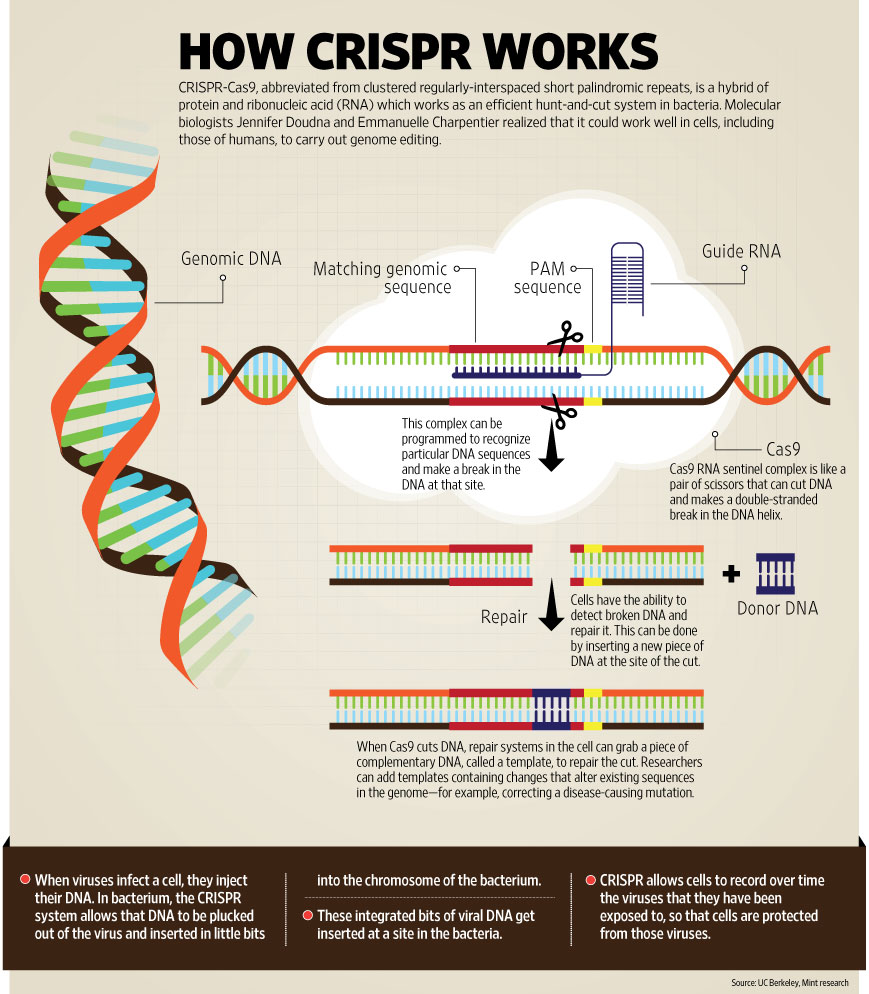Why CRISPR Technology Is Changing The Future

Alright, hold onto your laboratory goggles, folks! CRISPR technology has just taken gene editing from the world of sci-fi movies to your local lab—and it's about to change everything. Let’s dive into the whys and hows of this revolutionary tech that’s making genetic modifications as easy as editing a Word document.
The Lowdown on CRISPR
Imagine CRISPR as the ultimate genetic spell-checker. This powerful tool uses a combination of biological scissors and GPS coordinates to cut, paste, and tweak DNA with pinpoint precision. Originally discovered in bacteria, CRISPR-Cas9 has become the go-to method for scientists looking to edit genes more efficiently than ever before.
Picture this: CRISPR guides a molecular scalpel directly to a specific spot in the genome. Once it reaches its target, it snips out the unwanted gene and replaces it with a new one. It's like hiring a tiny, incredibly skilled genetic tailor to stitch in your desired traits. Mind-blowing, right?
From Lab to Real-World Applications
CRISPR isn’t just a gimmick in the lab; it’s already revolutionizing medicine, agriculture, and even the fight against climate change. Here’s a look at how this gene-editing marvel is making waves:
Medical Miracle?
Think about treating genetic disorders like sickle cell anemia or cystic fibrosis. CRISPR could theoretically correct these faulty genes, potentially curing patients once deemed untreatable. Case in point: In 2020, CRISPR Therapeutics and Vertex Pharmaceuticals launched CASGEV– the first FDA-approved CRISPR gene-editing therapy for sickle cell disease and beta thalassemia.
And that’s just the tip of the iceberg. Scientists are exploring ways to use CRISPR to develop more effective cancer treatments, vaccines, and even gene therapies for neurological diseases. The future looks darn promising, if not a bit terrifying!
Agricultural Innovation
Picture a world where crops can grow in harsh conditions, are resistant to pests, and produce higher yields. Thanks to CRISPR, farmers could have just such a dream scenario! Researchers have already successfully edited crops like corn and wheat to make them more resilient. For example, in 2021, Japanese researchers used CRISPR to develop a fungal-resistant wheat variety. Say goodbye to those pesky fungal blights ruining entire harvests!
Environmental Superheroes
Yes, you read that right. CRISPR is even helping in the fight against climate change. Scientists are experimenting with editing the genomes of microorganisms to enhance their ability to absorb carbon dioxide or break down pollutants. Think of it as creating a microbial army to save the planet!
The Ethical and Safety Concerns
Okay, okay, before you start picturing a world where lanes of CRISPR-engineered supersoldiers roam around, there are some significant ethical and safety concerns to consider. While CRISPR holds immense promise, there’s also the potential for misuse — which has sparked debates around gene editing in humans. You know, little things like creating designer babies or unintended genetic mutations fancy.
A sterling example? In 2018, Chinese scientist He Jiankui claimed to have used CRISPR to edit the genes of twin girls to make them resistant to HIV. The international outcry was deafening (and rightfully so), leading to a global conversation about the responsible use of CRISPR technology.
Moving Forward with CRISPR
Despite the potential pitfalls, the future of CRISPR looks bright and exciting. The technology is advancing at breakneck speed, with new discoveries and applications being announced regularly. As we continue to explore and understand its full potential, it’s crucial that we do so with caution and ethical foresight. After all, with great power comes great responsibility. And when it comes to gene editing, the stakes have never been higher.
So, buckle up, folks! The CRISPR revolution is here, and it’s set to rewrite the book on genetics as we know it. Keep an eye on those labs—who knows what kind of groundbreaking discoveries are just around the corner?
Stay tuned and keep your head in the (genetic) clouds. The future is looking f*n genetically edited!
```
0 Response to " Why CRISPR Technology Is Changing The Future"
Post a Comment